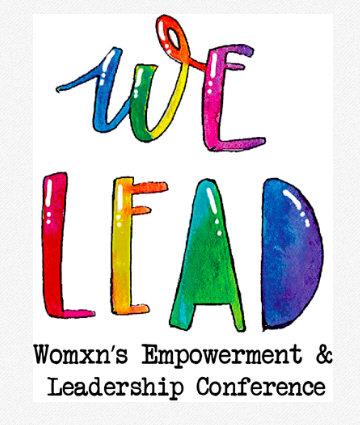We Lead: Womxn’s Conference leads attendees through personal narratives, community

We Lead Womxn's Conference / Sloss Center
The WE Lead Womxn’s Conference strives to help students enhance their leadership skills by participating in workshops and listening to guest speakers.
November 2, 2019
Numbers dropped this year for the We Lead: Womxn’s Empowerment and Leadership Conference, but still resulted in an intimate and vulnerable experience for those who attended.
The conference was held all day Saturday in the Alumni Center. It featured student speakers as well as speakers from the Ames and central Iowa communities. The conference gave students an opportunity to network and share experiences with each other.
One of the featured speakers was Teresa Zilk, creator of “Stories to Tell My Daughter,” a storytelling event. She led a breakout session titled “Creating Personal Narratives.”
During her session, Zilk shared her story and explained her motivations and reasons for starting “Stories to Tell My Daughter”, a storytelling event that focuses on the personal narratives of African American women and women of color.
Zilk also had attendees participate in activity where they shared stories that they remember first hearing growing up, as well as a time that they lead and solved a problem.
“The reason I am passionate about [storytelling] is because I see it as a very powerful way to connect us,” said Zilk. “If we open ourselves to listening to other people’s stories we can connect across political, we can connect across economic and all these boundaries that we put up. If we’re telling stories […] and we allow all those viewpoints and all those stories out into the mainstream we can connect and empathize with one another. I think that’s a powerful thing, and I think it’s the thing that’s needed.”
Hearing different perspectives was common throughout the conference, whether it was the speakers or students sharing stories, personal experiences and advice. Zilk touched on the fact that no matter one’s age, they too could offer wisdom to others through storytelling.
“I was able to hear from part of the Iowa State body and work with young women who I thought were extraordinary and have such a strong sense of who they are and where they’re going in life and have a deep well of wisdom and things to share,” said Zilk.
Zilk was one of the four breakout session speakers attendees could choose to listen to. The other three were “Candidate and College Student: Campaigning Her Way,” with Rachel Junck; “Woman Adjacent: Be the Dad You Wish to See in the World,” with Max Mowitz; and “Building Community” with Samone Whitfield.
Following breakout sessions was a lunch question and answer session with Margo Foreman, the assistant vice president for diversity and inclusion and equal opportunity at Iowa State. The session led to some questions about policy, specifically regarding recent cases of hate speech on campus. This proved to be enlightening for student Elizabeth Cavanah, a senior in industrial engineering.
“My favorite part so far is getting a different perspective of administration with the hate speech versus free speech,” said Cavanah.
Cavanah said she originally chose to attend the conference as a chance to better herself as a leader and be around other empowering young women.
“A huge thing for me is networking and learning more about the university and learning about role models on campus,” said Cavanah.
Three student speakers gave short presentations about issues they were passionate about changing.
This included Katie Friesen talking about creating solidarity amongst women, Elizabeth Smith giving examples of what youth can do to save the environment, and Regine Peters and Helen Barton discussing what privileges an individual’s color of skin can provide them here in the United States versus the countries they grew up in.
“We hope that people who attend the event can come in and build on their leadership skills and feel empowered in their leadership positions whatever that may be,” said Breanna Kass, equity and social justice coordinator at the Margaret Sloss Center for Women and Gender Equity.
















